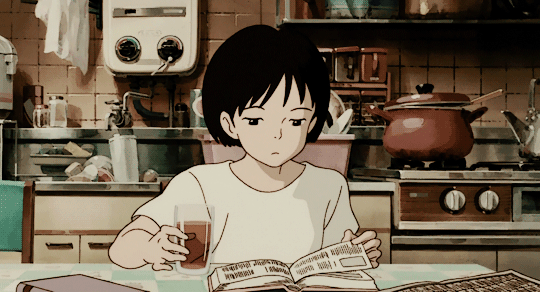I cleaned up my book collection. In that process, I sold, donated, and gave away many books that I know I don't want to own anymore (they deserve to be read by others). So upon analyzing these books, I decided that it was time for me to actually read the books that I bought but kept for years because I was not in "the right mood". Tapi yelah, sapa nak baca buku classic lit waktu2 tengah serabut kan.
So then, that is how I started to read both these books that I've had since forever on my Raya weekends:
- The Double by Fyodor Dostoyevsky, 1846
- The White Castle by Orhan Pamuk, 1985
I was gladly surprised by the coincidence of the book theme:
the duality / double characters. This wasn't even planned, I randomly picked these books on my shelves. I'm also still in
Hesse's fever, so the same theme spread all across his novels (Narcissus & Goldmund, Demian, Steppenwolf, Siddhartha) that I've been reading since last year + and I'm researching his connection with Carl Jung's ideas on that as well.
I've been toying with the theme ever since I reached my mid-30s and started questioning the meaning of my whole existence and the rationale of my decisions in life. So these are the same themes written by all legendary writers and a topic much discussed by psychoanalysts, I'm also awed by how they wrote these ideas, theories, observations, and questions in their own fiction. Sebab when we write our thoughts and ideas in a fiction, takde lah audience feel like they are being forced to accept these ideas/theories kan, instead much towards geletek2 our own curiosity to use the chance to analyze that idea yourself - see whether you agree or not.
-
The White Castle (summary taken from Wiki):
In the 17th century, a young Italian scholar sailing from Venice to Naples is taken prisoner and delivered to Constantinople. There he falls into the custody of a scholar known as
Hoja (master) a man who is
his exact double. In the years that follow, the slave instructs his master in Western science and technology, from medicine to pyrotechnics. But Hoja wants to know more: why he and his captive are the persons they are and whether, given knowledge of each other's most intimate secrets, they could actually exchange identities.
Note: What I love the most about Orhan's writing in this short novel is how he wrote his story from the characters' silent observations and experiences without the feeling of the character's self-importance or entitlement (this is hard to achieve). He was simply observing. Perhaps it is the character's personality, as someone knowledgeable in this story, he performs his observations on his double like a silent experiment, and his calmness radiates even though he is a slave of his double in this book.
Love it when they start to do writing exercises together, slowly the slave starts to use that chance to learn about his master's personal thoughts and at the same time make use of this personal self-discovery in writing about himself to his own advantage. This wasn't the modern world (it was the 17th century), so the idea of using psychoanalysis to learn about your enemy in writing - is just fun.
vs
The Double (summary taken from Wiki):
In Saint Petersburg, Yakov Petrovich Golyadkin works as a titular councilor, a low-level bureaucrat struggling to succeed.
Golyadkin has a formative discussion with his physician, Doctor Rutenspitz, who fears for his sanity and tells him that his behavior is dangerously antisocial. He prescribes "cheerful company" as the remedy. Golyadkin resolves to try this and leaves the office. He proceeds to a birthday party for Klara Olsufyevna, the daughter of his office manager. He was uninvited, and a series of faux pas led to his expulsion from the party. On his way home through a snowstorm, he encounters a man who looks exactly like him, his double. The following two-thirds of the novel then deals with their evolving relationship.
At first, Golyadkin and his double are friends, but Golyadkin Jr. proceeds to attempt to take over Sr.'s life, and they become bitter enemies. Because Golyadkin Jr. has all the charm, unctuousness, and social skills that Golyadkin Sr. lacks, he is very well-liked among his office colleagues.
Note: So, I've read Fyodor's writings and mostly these books feel like they were written by someone with a mental health problem - his paranoia, his insecurities, his confusion, his nagging judgment on others. This book is just another fiction based on that. Sure, he fictionized his observations on life and the society around him - but they were just a bit too negative. I can feel his struggle with that, it was eating him. Although the theme is "duality" and the characters share the same name and face, one is the original one, and another one "acts" like the better version of him - in a way, it feels like a fake character, an alter ego of some sort just to steal his identity.
-
Aaaanyway, perhaps I'm too into this.
Well, I personally think The White Castle was an interesting calm read on the given topic and The Double was a bit too chaotic for my own taste. The interesting part is this in itself feels like the extreme sides of both writing voices, which I noted and compared because I read both books in 2 weekends. Menyesal I took so long to finally read them.
For that, I end my nerdy post with,
thank you for coming to my tedtalk.
♥







